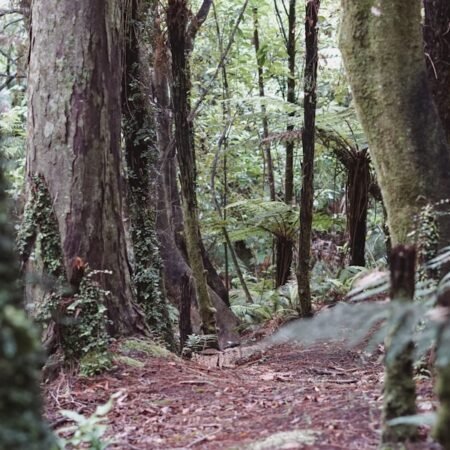Camping is often misunderstood as an activity reserved for experienced outdoor enthusiasts. However, this notion is far from the truth. Camping is an inclusive activity that can be enjoyed by anyone, regardless of their level of experience.
There are various types of camping experiences available, ranging from car camping at established campgrounds to backcountry camping in remote wilderness areas. Whether you’re a novice or an experienced outdoor enthusiast, there’s a camping experience tailored to your needs. In fact, many people find that camping is an excellent way to connect with nature and acquire new outdoor skills.
With some research and preparation, anyone can embark on a camping trip. Contrary to popular belief, camping doesn’t have to be an expensive hobby. While high-end camping gear and equipment are available, they’re not necessary for a enjoyable camping experience.
The basics, such as a sturdy tent, a sleeping bag, and some cooking supplies, are all you need to get started. Additionally, there are affordable options for renting or borrowing gear, making camping an accessible activity for everyone. One of the most common misconceptions about camping is that it’s unsafe and fraught with dangers.
While there are some risks associated with spending time in the great outdoors, camping can be a safe and enjoyable activity with the right preparation and precautions. By following basic safety guidelines, such as being aware of your surroundings, properly storing food to avoid attracting wildlife, and being prepared for changes in weather, you can minimize the risks associated with camping. Millions of people go camping each year without incident, and with the right preparation, you can have a safe and enjoyable camping experience.
Another common myth about camping is that it’s uncomfortable and inconvenient. While camping does require you to forgo some of the comforts of home, it doesn’t have to be uncomfortable or inconvenient. With the right gear and preparation, you can have a comfortable and enjoyable camping experience.
There are various types of camping gear available that can make your trip more comfortable, such as air mattresses, portable showers, and camp stoves. Additionally, there are different types of campgrounds available, ranging from rustic sites with no amenities to more developed sites with showers and electricity. With some planning, you can find a camping experience that meets your comfort level and preferences.
Many people believe that camping requires a lot of planning and preparation, but this isn’t necessarily true. While some research and preparation are necessary, it doesn’t have to be an overwhelming or time-consuming process. With some organization and forethought, you can have a successful camping trip without spending weeks planning and preparing.
There are many resources available to help you plan your trip, such as guidebooks, websites, and apps that can help you find campgrounds, plan your route, and prepare for your trip. Additionally, many campgrounds have amenities such as fire pits, picnic tables, and restrooms that can make your trip more convenient. While many people associate camping with warm weather, it’s possible to go camping in all seasons.
In fact, many people find that camping in the off-season can be a great way to avoid crowds and enjoy the beauty of nature in a different light. With the right gear and preparation, you can have a safe and enjoyable camping experience in any season. There are various types of gear available that can help you stay warm and dry in cold weather, such as insulated sleeping bags, warm clothing, and waterproof tents.
Additionally, there are many campgrounds available that are open year-round, so you can find a camping experience that meets your preferences. Some people believe that camping is bad for the environment, but this isn’t necessarily true. While it’s important to be mindful of your impact on the environment when camping, there are many ways to minimize your impact and enjoy a sustainable camping experience.
By following basic Leave No Trace principles, such as packing out your trash, staying on designated trails, and respecting wildlife, you can minimize your impact on the environment while enjoying the great outdoors. Additionally, there are many eco-friendly camping gear options available that can help you reduce your environmental footprint while enjoying nature. In conclusion, there are many common myths about camping that can discourage people from trying this enjoyable outdoor activity.
However, with the right information and preparation, anyone can have a safe and enjoyable camping experience. Whether you’re a novice or an experienced outdoor enthusiast, there’s a camping experience tailored to your needs. With some research and preparation, you can find affordable gear and plan a successful trip without spending weeks planning and preparing.
Additionally, with the right gear and preparation, you can enjoy a comfortable and sustainable camping experience in any season. So don’t let these common myths hold you back from enjoying the great outdoors – get out there and go camping!
FAQs
What are some common camping myths?
Some common camping myths include the belief that bears are attracted to the scent of menstruating women, that moss only grows on the north side of trees, and that you can suck venom out of a snakebite.
Is it true that bears are attracted to the scent of menstruating women?
No, this is a common myth. There is no scientific evidence to support the idea that bears are attracted to the scent of menstruating women.
Does moss only grow on the north side of trees?
No, this is a myth. While moss does tend to grow more on the north side of trees in the northern hemisphere due to less direct sunlight, it can also grow on other sides depending on the local climate and environmental conditions.
Can you suck venom out of a snakebite?
No, this is a myth. Sucking venom out of a snakebite can actually do more harm than good. It’s important to seek medical attention immediately if bitten by a snake.













